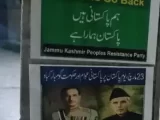
Asaduddin Owaisi Condemns Modi Government’s CAA, NRC & NPR Measures
March 21, 2024Indian politician Asaduddin Owaisi, who serves as the President of the All India Majlis-e-Ittehadul Muslimeen (AIMIM), has strongly criticized the National Population Register (NPR) and National Register of Citizens (NRC) in conjunction with the Citizenship Amendment Act (CAA), alleging that these measures are orchestrated by the Modi government to target minorities, Dalits, and tribal communities in India.
Owaisi emphasized the interconnectedness of the CAA, NRC, and NPR during a press briefing following a party meeting in Chhatrapati Sambhajinagar City, Maharashtra. He pointed to the implementation of the NRC in Assam, where approximately 1.9 million individuals found their names excluded from the register. Owaisi highlighted the Assam Chief Minister’s assertion that Hindus would be granted citizenship through the CAA, leaving around 150,000 individuals from minority groups to navigate legal challenges. Moreover, he underscored that merely 5 per cent of the Indian population possesses passports, implying that the implementation of these measures disproportionately affects minorities, Scheduled Castes (SCs), and Scheduled Tribes (STs) within their nation.
The stance articulated by Owaisi underscores a broader concern regarding the implications and motives behind the NPR, NRC, and CAA. These measures have sparked nationwide debates and protests since their introduction. Critics argue that the NPR and NRC, coupled with the CAA, could potentially be used to discriminate against and marginalize minority communities, particularly Muslims, by providing preferential treatment to non-Muslim immigrants seeking citizenship.
The controversy surrounding the NRC in Assam serves as a pertinent example of the challenges and controversies associated with such citizenship verification exercises. The exclusion of a significant number of individuals, coupled with the complex process of proving citizenship, has raised fears of statelessness and targeted exclusion, particularly among vulnerable communities.
Moreover, Owaisi’s reference to the low percentage of passport holders in India draws attention to the practical hurdles individuals may face in providing documentation to prove their citizenship status. This underscores the potential for disenfranchisement and exclusion, particularly among marginalized groups with limited access to documentation and resources.
In essence, Owaisi’s remarks encapsulate a broader apprehension regarding the NPR, NRC, and CAA, portraying them as instruments wielded by the government to target and disenfranchise minority communities. The interconnectedness of these measures underscores the need for critical scrutiny and public discourse to safeguard the rights and inclusivity of all citizens, irrespective of their religious or ethnic background.

